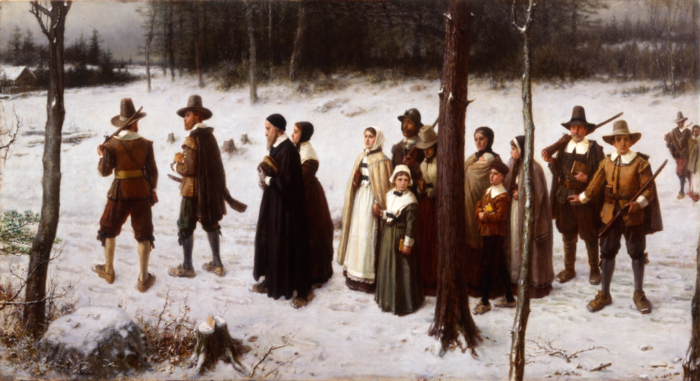Cultural Moralist, Separatist, or Universalist?
My recent posts on a series I created called “Magic in Fantasy” here on Speculative Faith seem to to have uncovered a more basic issue for Christian writers (and fans) of speculative fiction (to my mind anyway). What should be our attitude in regard to the culture around us? Should we be Moralists, trying to make the culture better? Separatists, trying to establish our own subculture? Or Universalists, who accept everything we see around us without reservation, since God is going to bring everything around to his glory in the end?
Note I don’t make any real distinction in my view of this question between commonly-seen-as-highbrow culture of so-called fine arts, symphonic music, literary novels, opera, ballet, theater, etc, and supposedly more lowbrow popular culture of comic books, genre novels, various flavors of music, movies, etc. For me, the main difference between highbrow and lowbrow has nothing to do with moral issues but rather a presumption of sophistication–or maybe being pretentious–or a presumption of simple-mindedness–or maybe refusing to dislike something simply because most people like it. These issues that divide “high culture” and “low culture” have nothing to do with whether a particular act of art expresses a moral or Christian worldview. So in my view, popular culture really is just like any other form of artistic expression in terms of how Christians should react to it.
Two of the three categories I listed above are linked to historical attitudes Christians have had in regard to how to engage culture–being Moralist or Separatist. “Universalist,” though, has referred to a doctrinal position rather than a cultural one–the doctrine that everyone will find eternal salvation in heaven, no matter what they do or believe on earth. The cultural position of accepting all has been called “Libertine,” but I chose not to use it here because I think it would make my point less clear than “Universalist” will.
Let’s review the three positions:
Moralist
In a way, “Puritan” would be a better term to express what I mean than “Moralist” but I think the term “Puritan” has so many negative implications that it’s better to go with the term “Moralist” for this post instead. But to take a brief look at Moralist/Puritan history:
The Church of England got its start infamously with King Henry VIII seeking a divorce and not being able to get one from the Pope. The Anglican Church retained a number of Catholic elements, but soon enthusiastic Protestants were among the Anglicans, who felt the Church hadn’t reformed enough. The Puritans, who are perhaps the most important group of Moralists in English history, wanted to engage the dominant church of their nation, take it over, and purify it by adopting elements that defined the Congregational denomination. Puritans also largely believed that Christians ought to be running the whole culture and backed Parliament during the English Civil War (1642-1649) against the nobility-supported Royalists a.k.a. Cavaliers. The Puritans won that war and Oliver Cromwell, Puritan general, as a result ruled the United Kingdom as a dictatorship for a five years.
During that time and afterwards the Massachusetts Bay Colony was Puritan/Moralist-run. They meant the colony to be a model for how mother England should live. By law, swearing was prohibited, as were playing cards, dancing, music and a number of other cultural matters that the Puritan brand of Moralism didn’t approve of. Their specific list of do-nots isn’t important for this post, what matters is they made their convictions the law of the land and thought no one should be allowed to think otherwise–including be a member of any church other than the Congregational Church.
Moralists as I’m defining them here didn’t just live legalistic personal lives, they didn’t just impose their beliefs on other Christians, they essentially believed in a theocracy in which Christians would run the government.
Note again the Puritanical or Moralistic tendency as I’m referring to it does not refer to any specific set of approved practices–but instead to the desire to take over and enforce certain cultural standards for everyone, whether they agree or not.
Separatist
In United States history the first separatists were the Pilgrims who settled at Plymouth, but a much more typical example would be the Amish or Mennonites, or any of the other religious minorities of Europe that simply wanted to live in peace in the Americas (including Shakers, Quakers, Jews, and many others). Separatist communities allow members who want to leave them to leave, even though internal to their community they do have rules and group standards. Separatists don’t object to other communities having different sets of standards than they have and have no interest in running the lives of anyone, except those who voluntarily stay in the community.

Pilgrims Going to Church, a public domain painting (1867) by George Henry Boughton
Historically each group of Separatists have had a number of doctrines they stood for that made them unique, including for example Shakers believing they needed to engage in dancing as a group in order to fully know God. But when I’m talking “Separatist” here, I don’t mean any specific set of beliefs, but rather the desire to create all-Christian enclaves within the larger culture, the desire to have a sub-culture that stands apart from the majority without trying to control or dictate what the majority will do.
Note, I’m aware of the fact that “separatist” is at times a term used for violent revolutionaries advocating the use of force to guarantee their own country-within-a country, as is the case for Basque separatists in Spain. What they do is not what I mean, but I don’t know of a term I can substitute for “separatist.”
Universalist
The word “Universalist” means multiple things, but within the context of Christianity it means believing that the forgiveness from sin that Christians link to the death of Christ will happen for everyone. Though some Universalists have believed in a literal hell, they believed that hell will be temporary and in the end, literally everyone will enjoy eternal salvation. Over time, the positions of Universalists have shifted–first they believed no one goes to hell permanently, then no one goes in the first place, then have wondered if there even really is such a thing as eternity, including other doctrinal shifts.
Protestants of the 1600s in England influenced Universalism but George de Benneville, who settled in separatist Pennsylvania in the 1700s was the first to bring the idea to the English colonies. Notions of Christian Universalism would be embraced by the Unitarian church, which itself entered North America in the late 1700s.
In regard to looking at culture, I’m applying the term “Universalist” in what I believe is an original way, but refers to the idea that all creation ultimately comes from God. All is good in its own context, in parallel with the Universalist idea that every individual human being will go to heaven. The Universalist idea would be that all art is ultimately good, because it ultimately reflects the power of the Creator of all.
I like this term better than “Libertine” because even though that is a position some Christians have adopted in regard to the world of sin, that is, we can partake as much as we want in sin and God will forgive us anyway, “Libertine” also implies being as deviant as possible in a given context. And that’s not what I’m really referring to–I’m referring to an attitude that contrasts with the other two positions I laid out. It’s unlike the idea of taking over the culture of the world and making it pure and also unlike establishing a separate sub-culture–it instead embraces the culture around us and attempts to incorporate it into our lives as much as possible.
Primary Colors
What I’m suggesting is that these are the three primary colors of interaction with and engagement of culture and every other Christian attitude towards culture can be described as combination of these three positions. For example, some people who are basically Universalists become Separatists when discussing pornography (I won’t participate in that, but other people can) and flip all the way to moralistic Puritans when talking about horrific things like child pornography (no one should be allowed to do that, I don’t care what they think).
Someone who reads this will probably say, “But I don’t agree with any of those positions–I just want to engage the culture of this world for Christ!” But if you engage the world while maintaining that Christ is important when the world doesn’t believe that, you are engaging in Separatism on a personal level by maintaining that standard. If you want to speak the language the world uses by using tropes and genres common to the non-Christian world, you are incorporating at least a touch of Universalism in that you adopt part of what the world is doing, considering it holy for your purposes. If you ever seek to influence the world to be different by what you write, then you are engaging in a drop of Moralism. But if you on the other hand you don’t believe you can change the world except by calling others to join your community that remains separate from the world culturally, you’re showing a Separatist streak.
Note that these three tendencies show themselves in a lot of Christian history, though the attitudes are not necessarily exclusive to Christians. Writing Gay Science Fiction (which is a thing) for those who want to read it without forbidding everyone else to have their own thing reflects a Separatist thought process. Modern Social Justice Warriors are clearly Moralists who not only believe something strongly, they are determined to change the culture over to their way of thinking no matter what anyone else thinks about it. And Cultural Universalists who are non-Christians looking at Christianity and accepting it as part of all that makes humanity good are not all that common, but they do exist.
Christians who support lawmakers who are against abortion can be thought of as Moralists in at least that one way, because as I mean it here, I mean a desire to change the culture to what you believe is right is “Moralist.” But the same person may be a Universalist when it comes to most entertainment, but still believe in maintaining a separate space to read and enjoy Christian fiction.
I did some thought experiments to determine if there’s an attitude concerning the culture of the world that can’t be described by combinations of the three positions I’ve identified. I couldn’t come up with anything. If you can think of something I missed, please mention it in the comments below the post.
What should our position be?
So, having laid out three positions and suggested these are like three primary colors that each Christian (and non-Christian, too) has in some combination in regard to cultural engagement, the reader might ask if I have some sort of recommendation based on these positions. What we should do? What’s right?
I think I need to follow up this post with one that looks at what the Bible says about this in some detail, but in short I’m primarily a Separatist at heart. While we do seek to influence the world, we primarily should be about the business of sharing the Gospel when it comes to influencing, which means getting people out of what they formerly believed and into something separate from that–changing their deepest beliefs without having to change their outward trappings. While we can and should be in the physical company of those who don’t believe, I’d say we should do so in a way that indicates we clearly are separate from them in the way we think and act. Because if nothing else, showing love for people isn’t actually what most people do. Nor is avoiding sin as described in the Bible something most people live.
Does living differently than others require separate art and literature? No, it doesn’t…but it seems to me that the very act of being different from the world that doesn’t know Christ will cause us to naturally focus on things the world doesn’t focus on. Being different in the heart will make us different from the world around us in our art. And since we are different, we should look at the culture of the world with a critical eye. We should not wholeheartedly accept any form of entertainment, but neither should we decide in advance that all is worthless. We should be examining each bit to see if it measures up to what we believe.
So we should be mostly Separatist, I would say. But we can’t go that direction 100%. That’s what I would say Christians should do–Bible verses to back up my position will coming in another post, God enabling.
The Future of the Three Positions
One of the fascinating observations about the three positions I laid out is the Puritans of New England completely lost the set of convictions concerning right and wrong that they had at one time. Though New Englanders are still Moralists, still interested in dictating to others what they think is right–but what they believe is right has totally flipped, so they are now vigorous apologists for non-Christian ideas.

Modern Puritans on the march. Image credit: TheBollard.com
Whereas Universalists over historical time have come to believe less and less and less. First they jettisoned the idea of eternal punishment, then the idea that the death of Christ was actually necessary, then the idea that anything in the Bible can be believed, then the idea that God is a literal person or even heaven is a reality. Bit by bit, wholly embracing the philosophically of the world led to the world steamrolling the Universalists culturally and re-forming them into their own image. I fear the same thing happens to people who wholeheartedly embrace the entertainment and culture that surrounds us–eventually, they tend to get reformed into the image of the world rather than the image of Christ.
Only Separatism has shown itself to be stable over a long period of time, where Christians have maintained their convictions over a long time without getting manhandled by the culture of the world. Though the great weakness of Christian Separatism is to be so separate that they never reach out to the world at all. Clearly pure Separatism doesn’t obey the command to share the Gospel with the world and train disciples of Christ. Yet I’d say a certain level of separation is appropriate, a place of our own that we invite the world to come join. I think that applies to the arts and literature that Christians produce as much as it does to other aspects of our lives.
So I’ve told you what I think–what do you think? Please share your thoughts in the comments below.









































I like your essay on this…Hey, remember that verse that says, “I have become all things to all people so that by all possible means I might save some.” That’s me, flying kite-like in new age, wrapped warm in the blanket of old-time-religion, add a dash of speculative sci-fi, but with roots deep in the soil of scripture! Our God is that big!
Thanks for your comment!
Given the examples you gave of having little drops of each ‘color’, I guess I’m a mix of all three. I do believe in influencing things for the better and pretty much everyone has their own way of viewing what society should be and is a bit of a Moralist from that standpoint.
At the same time, I don’t think we can force everyone onto the right path, and doing so would cause lots of problems, regardless of what the end goal actually is. The anime Death Note can be a good example, though of course a generally exaggerated one. Yagami Light was basically using the Death Note to kill off all criminals and force the world to be peaceful. He was going to use that to scare everyone into behaving right and set himself up as the world ruler. But even though he claimed to be a defender of the meek, many innocent people of course opposed him, and thus he killed a lot of good people trying to get what he wanted.
That dynamic can play out in small ways. People hold a moral conviction because they think it’s right and will make the world better, but act forceful or prejudiced about it until they harm people and turn them away. A lot of liberals are hateful because they had parents, teachers, etc that went about their beliefs the wrong way. But now it’s flipping, with a lot more conservatives becoming self aware and a lot of liberals becoming more forceful.
There’s a difference between morally right and what should be a law, though. And maybe also a difference between morally right and what people try to enforce on each other through social pressure. The more extreme liberals seem to conflate all those together, almost to the extent that they think the law should force people to be nice.
In a matter of speaking I consider myself an autonomous unit from everyone, but try to influence things for the better, but not in the sense of forcing people into things. I believe more in conversation and being an example of one’s philosophy. Not to say that I won’t ever stand up for anything, but I try to be conscious of how I do it. I engage in aspects of culture, but I hesitate to call myself much of a Universalist. I don’t think ‘everything’s fine’. Even if I watch something I can have a big problem with it. It’s easy for me to understand and sympathize without agreeing. It’s also fun to think that everything and everyone will be redeemed no matter what, but there’s no way to know for sure, so why risk it?
I’m less about ‘rules’, at least in terms of societal traditions and such, and more about what it takes to accomplish things in a constructive and moral manner. That involves understanding the other side and gathering info on what they think. It isn’t really possible to force everyone to believe a certain way and doing so would be wrong, but there’s a lot of other goals to work toward and influence. Maybe two people won’t ever agree, but they can learn to respect each other and work out a situation where they’re both treated decently and can actually work together for reasonable solutions.
My parents also liked to say ‘Be in the world but not of it’, so that was part of the philosophy I grew up with. Wouldn’t say I exactly match my parents, at least in terms of precise ways I handle things, though. But maybe some of our overall processes are similar, and we differ on details and execution.
I wrote you a nice long comment but it didn’t save for some reason.
I think though that if my 3 primary colors are correct (and they may not be) then almost everyone would be a combination of the three things. I am too, even though I’m definitely more separatist.
I think SpecFaith’s eaten a few of my comments before, too.
And yeah, probably. Some of it might break down to the reasons people exhibit some of these behaviors and how reliant each color is on those reasons, though. If someone engages/integrates culture into their lives, but does it simply to learn how to navigate it or change it(instead of engaging with it because they think God will redeem it all anyway), then would that be Moralist or Universalist? Like, the Universalist behavior is there, but the reasons are Moralist. Maybe it’s just an example of how complex the mixing of the colors can get.
I guess due to how much of a lone wolf I am I might be primarily separatist as well, though it’s hard to say for sure right now.
Where would you put a more Libertarian view? (Libertarian in the sense that people should be free to do what they want as long as they aren’t harming anyone). That one’s probably fairly common.
I think you are right that a “free to do what you want” view is probably a color I left out. But it’s quite similar to what I called “Universalism”–but Universalism says “I’m free to do whatever I want because God has blessed it”–unless some obvious harm is evident.
What you’re calling the “Libertarian” view would be, “I’m free to do whatever I want just because I am, who cares what God thinks about it”–unless some obvious harm is evident.
The “what God thinks about it” line is a bit harsh to the Libertarian point of view, but seriously, as a Christian, I think we ought to be thinking along the lines of having theological justifications for what we do. Libertarians don’t agree that such theological justifications are necessary. So a Universalist would pretty much act like a Libertarian, but justify the actions differently.
You are probably right that there are many Libertarians in practice, probably many more than Universalists. I should have accounted for that. I’ll have to do better next time, if I ever write anything like this again.